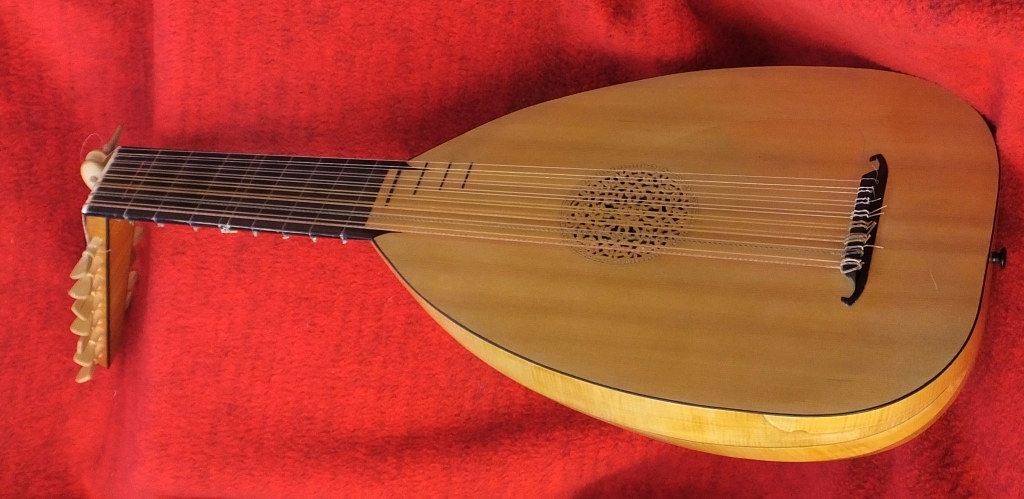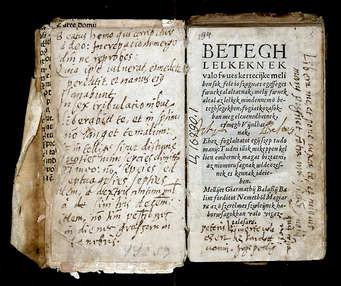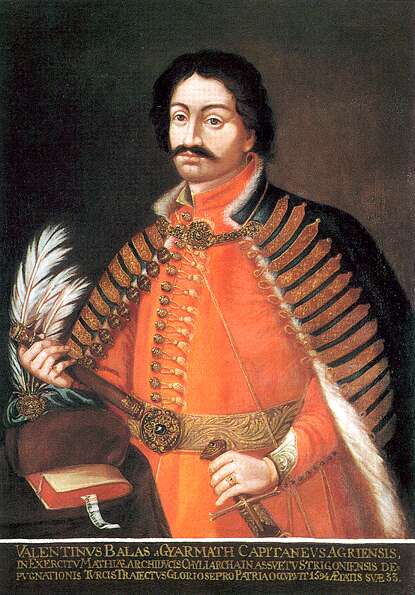Bálint Balassi: Borivóknak való (For wine drinkers – sung in English)
BORIVÓKNAK VALÓ
IN LAUDEM VERNI TEMPORIS
az “Fejemet nincsen már” nótájára
Áldott szép Pünkösdnek gyönyörű ideje,
Mindent egészséggel látogató ege,
Hosszú úton járókot könnyebbítő szele!
Te nyitod rózsákot meg illatozásra,
Néma fülemile torkát kiáltásra,
Fákot is te öltöztetsz sokszínű ruhákba.
Néked virágoznak bokrok, szép violák,
Folyó vizek, kutak csak néked tisztulnak,
Az jó hamar lovak is csak benned vigadnak.
Mert fáradság után füremedt tagokat
Szép harmatos fűvel hizlalod azokat,
Új erővel építvén űzéshez inokat.
Sőt még az végbéli jó vitéz katonák,
Az szép szagú mezőt kik széllyel béjárják,
Most azok is vigadnak, s az időt múlatják.
Ki szép füvön lévén bánik jó lovával,
Ki vígan lakozik vitéz barátjával,
Ki penig véres fegyvert tisztíttat csiszárral.
Újul még az föld is mindenütt tetőled,
Tisztul homályából az ég is tevéled,
Minden teremtett állat megindul tebenned.
Ily jó időt érvén Isten kegyelméből,
Dicsérjük szent nevét fejenkint jó szívből,
Igyunk, lakjunk egymással vígan, szeretetből!
Balassi Bálint
FOR WINE DRINKERS
IN LAUDEM VERNI TEMPORIS
To the tune of the song’Fejemet nincsen már’
Blessed sweet Pentecost’s weather brightly glowing,
Beautiful sky on all healthiness bestowing,
Wind that brings relief onto tired wayfarers blowing!
It is thou who givest perfume to the roses,
The once mute nightingale now its song composes,
And trees, too, thou dressest in many-coloured clothes.
It’s through thee that hedges bloom, violets appear;
Flowing waters and wells through thee turn crystal clear,
And our speedy stallions, too, prance along with good cheer.
For after their long run, the tender grass bedews
Their exhausted bodies, while their vigour renews,
Infusing new energy in their nerves and sinews.
And even the good, brave frontier soldiers alight
And through the scented fields roam about with delight,
Now they, too, are overjoyed that the weather’s so bright!
In the soft grass leaving their horses to run free,
With their brothers-in-arms they go off on a spree
While with their blood-stained weapons their pages are busy.
The whole earth is renewed, thanks to thee everywhere.
Thanks to thee, the blue sky breaks through the misty air,
And every living creature emerges from its lair.
Enjoying, as we do, this weather through God’s grace,
From our hearts let us all His holy name praise,
Let us drink, and to true friendship our glasses raise!
English translation
by René Bonnerjea
8 chorus renaissance lute
copy built by Tihamer Romanek in 1998. The original instrument: Hans Frei, 1530 (Wien, KHM C34).

Sometimes I sing this song – of course, in Hungarian to Hungarian audiences – of Bálint Balassi (1554-1594) which has a double – Hungarian and Latin – title : Borivóknak való (For Wine Drinkers) / In laudem verni temporis (In praise of spring-time) dropping stanzas 4, 5 and 6. I do this partly because these are the stanzas having the most of the archaic phrases hard to understand at first for present-day’s ears, but also – maybe subconsciously – because I don’t feel like willing to praise ’ blood-stained weapons’.
Still, I have mixed feelings when I drop these stanzas. And also when I don’t. So I don’t quite agree with myself in either case. This needs to be explained:
The ’good, brave frontier soldiers’ gave their lives for the ’sacred case’ defending Christianity and the homeland. The Turkish soldiers gave their lives to save the souls of their infidel Hungarian brothers for the ’only one faith’. There have been so many causes, faiths, and so much blood has been shed for thousands of years for the lust of power operating with ideologies. An is still being shed today.
In my opinion, this poem is about praising life, and that’s why I sing it. And if I don’t hide the fact that it was chiefly the sword that represented manly virtue for our predecessors in their times and that they were led by their belief in defending the country, it is to give due honour to them and is not some kind of sabre-rattling.
If there are flush meadows of Elysium somewhere, and our ancestors – including Sir Balassi – are galopping around on their ’speedy stallions’ there, I imagine they wish us to stop wars and show manly virtues in defending life instead.
In the ’Balassi-codex’ we find this comment before the poem: ”To the tune of the song ’Fejemet nincsen már’<’No place to lay my head’>”. This confirms the statement I made earlier that in this age poems and songs meant very much the same. This translation is the work of the recently deceased (2012) linguist, poet, literary translator of Hindu-English origin René Bonnerjea who lived in Hungary for forty years and besides holding other posts, was a professor of the prestigious Eötvös College in Budapest. Thanks to Andy Brunning for answering questions about prosody in applying the translation to the original tune.



